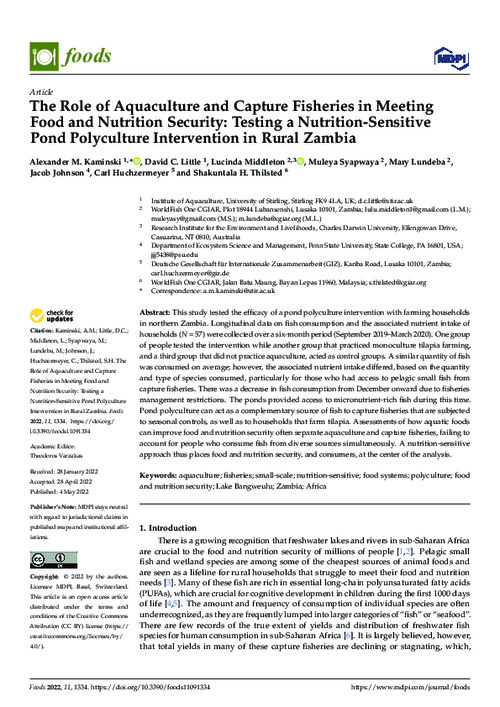The Role of Aquaculture and Capture Fisheries in Meeting Food and Nutrition Security: Testing a Nutrition-Sensitive Pond Polyculture Intervention in Rural Zambia

This study tested the efficacy of a pond polyculture intervention with farming households in northern Zambia. Longitudinal data on fish consumption and the associated nutrient intake of households (N = 57) were collected over a six-month period (September 2019–March 2020). One group of people tested the intervention while another group that practiced monoculture tilapia farming, and a third group that did not practice aquaculture, acted as control groups. A similar quantity of fish was consumed on average; however, the associated nutrient intake differed, based on the quantity and type of species consumed, particularly for those who had access to pelagic small fish from capture fisheries. There was a decrease in fish consumption from December onward due to fisheries management restrictions. The ponds provided access to micronutrient-rich fish during this time. Pond polyculture can act as a complementary source of fish to capture fisheries that are subjected to seasonal controls, as well as to households that farm tilapia. Assessments of how aquatic foods can improve food and nutrition security often separate aquaculture and capture fisheries, failing to account for people who consume fish from diverse sources simultaneously. A nutrition-sensitive approach thus places food and nutrition security, and consumers, at the center of the analysis.
Permalink
Date Available
Type
Publisher
Countries
ISSN
2304-8158
Copyright
CC-BY-4.0
Topics
Language